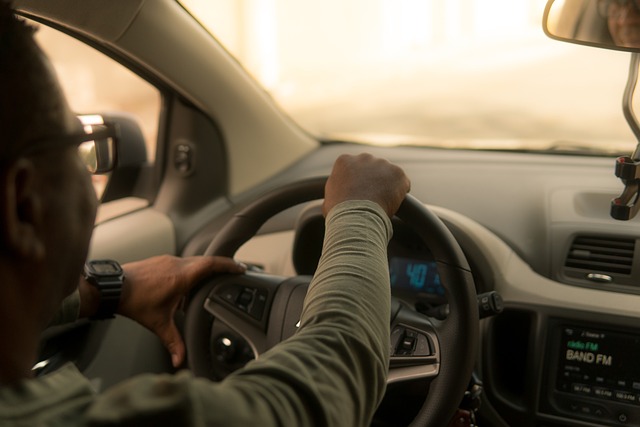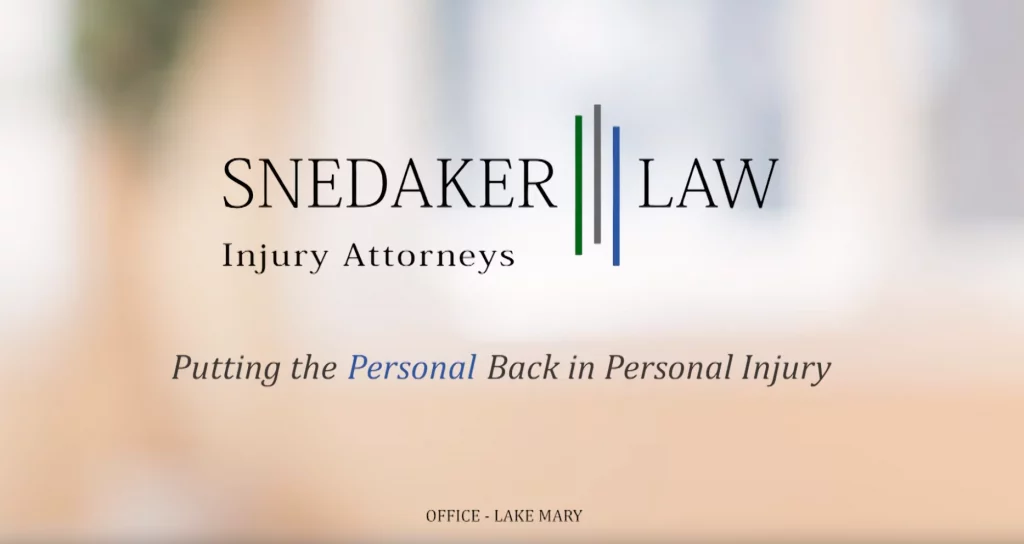Injured in an Uber or Lyft – Can I Sue?
Ridesharing services like Uber and Lyft have become a staple of transportation in Florida, but what happens when a ride goes wrong? If you’ve been injured in a rideshare accident, it’s crucial to know your rights and the steps you need to take. At Snedaker Law, we’re here to provide you with essential guidance.
If you’re injured in a rideshare accident, whether as a passenger, driver, or third party, you may have the right to sue for damages. The ability to sue depends on who is at fault – the rideshare driver, another driver, or, in some cases, the rideshare company itself.

Who is Responsible? Understanding Liability in Rideshare Accidents
Rideshare Driver at Fault
- Driver’s Negligence: If your Uber or Lyft driver’s negligence, such as speeding, distracted driving, or violating traffic laws, led to the accident, they can be held responsible.
- Claim Against Driver’s Insurance: In such cases, you can file a claim against the rideshare driver’s personal insurance. Additionally, most rideshare companies have contingent liability coverage, which may apply depending on the driver’s status in the app at the time of the accident.
Another Driver at Fault
- Third-Party Responsibility: Often, rideshare accidents involve other drivers who may be at fault. This includes scenarios where another vehicle collides with the rideshare car.
- Claim Against Third-Party Insurance: You would typically file a claim against the at-fault driver’s insurance. This process involves proving that the other driver’s actions were the primary cause of the accident.
Rideshare Company Liability
- Company Policies and Actions: There are instances where the rideshare company itself could be held liable. This could be due to inadequate driver screening, poor vehicle maintenance policies, or other factors that contribute to the accident.
- Suing the Rideshare Company: Filing a claim against a rideshare company like Uber or Lyft can be challenging, as they often classify drivers as independent contractors. However, under certain circumstances, such as a proven flaw in company policies or practices, the company could be liable.
Complexities of Rideshare Insurance Policies
Understanding Coverage Based on Driver’s Status
- Waiting for a Ride Request: When a rideshare driver is logged into the app but hasn’t yet accepted a ride request, the rideshare company’s contingent liability coverage applies. This typically includes limited liability coverage.
- En Route to Pick Up a Passenger or During a Trip: Once a ride request is accepted, the rideshare company’s insurance coverage increases significantly. This often includes $1 million in liability coverage and may include uninsured/underinsured motorist coverage.
- Florida Statute 627.748: This statute requires rideshare companies to maintain primary automobile insurance that covers the rideshare driver from the time the driver accepts a ride request until the rider exits the vehicle. This insurance must include at least $1 million for death, bodily injury, and property damage.
Navigating Multiple Policies
- Rideshare Driver’s Personal Insurance: In some cases, especially when the driver is not logged into the rideshare app, their personal insurance is the primary coverage. It’s important to know that personal auto insurance policies might exclude coverage when the vehicle is used for commercial purposes.
- Rideshare Company’s Insurance: When the rideshare company’s policy is the primary coverage, it may take precedence over the driver’s personal insurance.
- Third-Party Insurance: If another driver is responsible for the accident, you may need to file a claim against that driver’s insurance.
- Challenges in Claiming: Determining which insurance policy applies can be challenging. The specific circumstances of the accident, the rideshare driver’s status in the app, and the involvement of third parties all play a role in deciding which insurance policy to claim against.
Type of Damages That Are Recoverable
The types of damages recoverable in a rideshare accident can include:
- Medical Expenses: Compensation for hospital bills, rehabilitation costs, and future medical care.
- Lost Wages: Compensation for lost income if the injury has affected your ability to work.
- Pain and Suffering: This covers physical pain and emotional distress caused by the accident.
- Property Damage: If personal belongings were damaged in the accident, compensation could be sought.
How Long Do You Have to Seek Compensation in Florida?
In Florida, the statute of limitations for filing a personal injury lawsuit, including those involving rideshare accidents, is typically four years from the date of the accident. It’s important to act promptly to ensure your claim is filed within these legal timeframes.
Navigating Your Rideshare Accident Claim
Navigating a rideshare accident claim can be tricky, given the multiple parties and insurance policies involved. Here’s where legal expertise comes in. At Snedaker Law, we specialize in personal injury law, including rideshare accidents. We can help you:
- Understand Your Rights: We’ll explain your legal rights and options.
- Investigate the Accident: Our team can gather evidence to support your claim.
- Negotiate with Insurance Companies: We’ll handle negotiations to ensure you receive fair compensation.
- Legal Representation: If your case goes to court, we’ll provide robust legal representation
If you’re injured in a rideshare accident, taking the right steps can significantly impact your ability to recover compensation. Snedaker Law is committed to guiding you through this process, ensuring your rights are protected, and helping you receive the compensation you deserve. Contact us for a consultation, and let us advocate for you.

